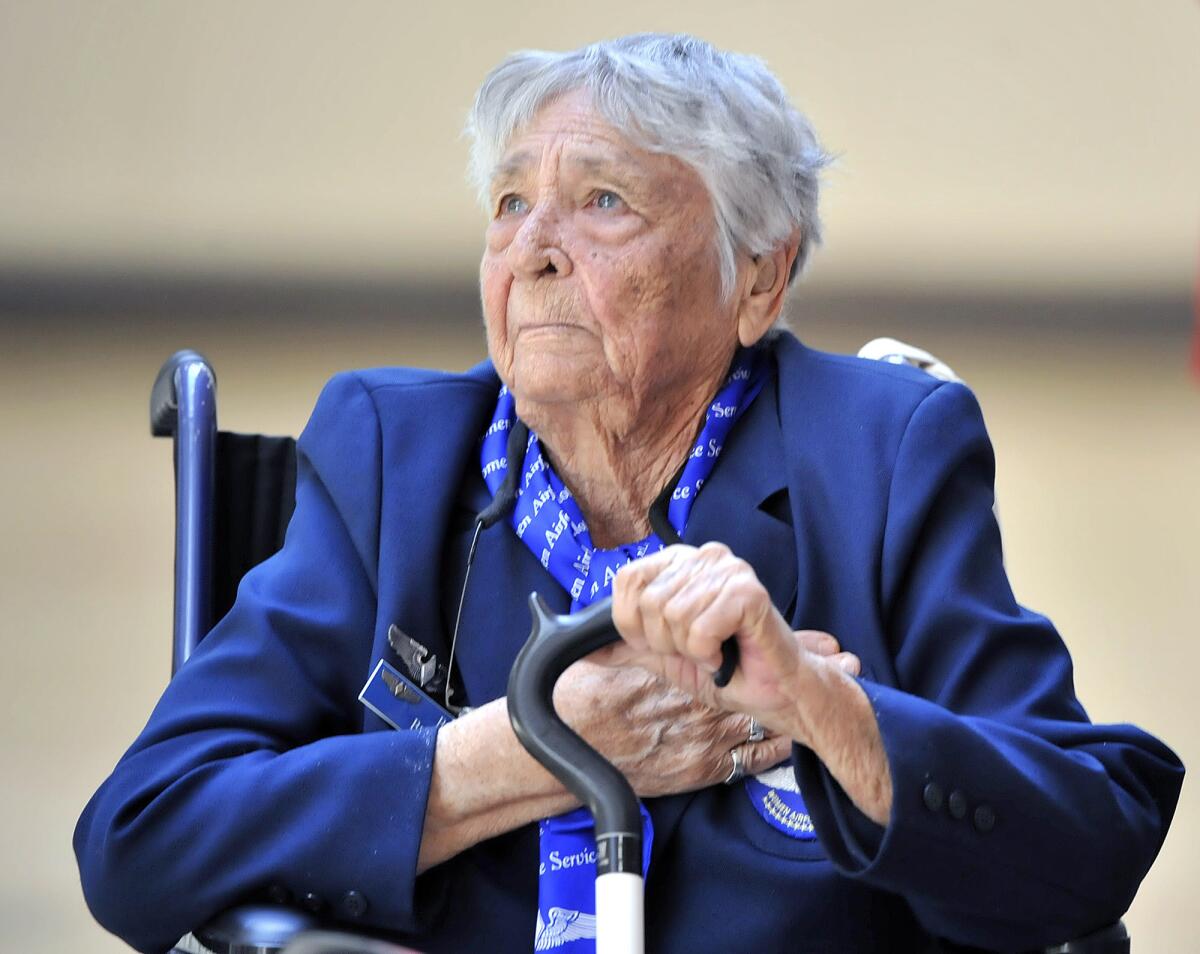Former WWII Women Airforce Service Pilot member speaks at FSHA

- Share via
The Tologs of Flintridge Sacred Heart Academy welcomed a graduate of 1937 onto their campus on Wednesday, when Beverly Beesemyer arrived to speak.
As a former WASP (Women Airforce Service Pilot) who flew during World War II, Beesemyer was invited to address students gathered as part of the Suegene Kim Lecture series.
PHOTOS: FSHA alum, former WASP, visits alma mater
She told the teens to “be yourself and do what you want to do, and don’t ever hesitate going gung-ho for what you desire. Even if someone says ‘I don’t think you ought to,’ just go right ahead and do it.”
Her can-do spirit was the driving force behind being the first in her family history to join the military ranks.
“I just took the bull by the horns and did it myself,” she said.
In a question-and-answer session, Beesemyer was asked what had been her most dangerous missions, how she became inspired to fly, and what her family thought of her signing up for the WASP program, among other questions.
She recalled she and the other women were forced to purchase their own uniforms after struggling to use rubber bands to keep their waistbands up on the larger pants that were designed for men. The fact that the women were considered civilians was a point that was driven home when a member of their rank died. Beesemyer explained to the students how the women had to pool money together to send the body of their fallen comrade home to her family.
One of the more intriguing responses came when the 95-year-old Beesemyer was asked about why she chose to become a WASP in the first place.
“That’s the toughest question anyone has asked me. I’ve always kept it a secret and I will still keep it a secret,” she replied, cryptically.
Her time in the air was brief, she said. “When the WASPs started, they were only in existence for two years during the war. I got in December of 1943 and was kicked out in December of 1944.”
Beesemyer was among approximately 200 women honored in Washington, D.C. in 2010 with the Congressional Gold Medal, the highest award Congress can present to a civilian, or group of civilians.
“I cried. I really did,” she said of receiving the award. “There were almost 200 WASPs, and it got so big it had to go to the rotunda in Congress. There were thousands of people there. It was very sentimental.”
Students said they were inspired by her visit to their campus.
“The story about putting money into a pool to send the body back to the family — it was incredible that someone had the strength to do that,” said junior Natalie Majich.
“She’s still here, she’s still pressing on, and she’s hilarious,” said Sarah Burrola, a sophomore. “She is one of the true definitions I’ve seen of a strong woman — of someone who knows how to stand up for herself, and knows what she wants out of life.”
Michael Bruer is a freelance writer.
--
ALSO:
Woman, teen hospitalized with hundreds of bee stings following collision
Upgrades to La Cañada home must come down
La Cañada High girls’ soccer’s perfect run ends in title match